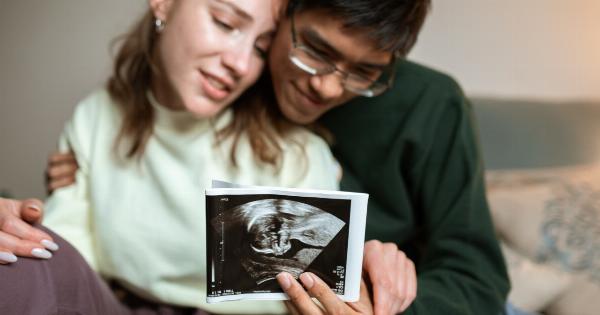Being overweight can have a significant impact on a woman’s fertility. In fact, studies have shown that there is a direct correlation between a woman’s weight and her ability to conceive and carry a pregnancy to full term.
This article will explore the various ways in which being overweight can affect a woman’s fertility and provide some recommendations on how to improve fertility outcomes.
1. Irregular Menstrual Cycles
One of the most common ways in which being overweight can affect fertility is by causing irregular menstrual cycles. Excess weight can disrupt the hormonal balance in the body, leading to irregular ovulation or even the complete absence of ovulation.
Without regular ovulation, it becomes much more difficult for a woman to get pregnant.
2. Increased Risk of Polycystic Ovary Syndrome (PCOS)
Polycystic ovary syndrome (PCOS) is a hormonal disorder that affects many women of reproductive age. Women with PCOS often experience irregular periods, difficulty ovulating, and higher levels of male hormones.
Being overweight increases the risk of developing PCOS, which in turn can impact fertility. It is estimated that up to 80% of women with PCOS are overweight or obese.
3. Reduced Egg Quality
Weight can also affect the quality of a woman’s eggs. Studies have shown that women who are overweight or obese tend to have poorer egg quality compared to women with a healthy weight.
Poor egg quality can significantly reduce the chances of successful fertilization and implantation, leading to difficulties in becoming pregnant and an increased risk of miscarriage.
4. Increased Risk of Gestational Diabetes
Being overweight or obese during pregnancy increases the risk of developing gestational diabetes, a condition characterized by high blood sugar levels that occur during pregnancy.
Gestational diabetes can have negative effects on both the mother and the baby, including an increased risk of complications during pregnancy and delivery. It can also contribute to long-term health issues for both the mother and the child.
5. Higher Risk of Pregnancy Complications
Women who are overweight or obese are at a higher risk of experiencing complications during pregnancy. These complications can include gestational hypertension (high blood pressure), preeclampsia, and premature birth.
Additionally, overweight women may require more medical interventions during labor and delivery, further increasing the risk of complications.
6. Decreased Success of Assisted Reproductive Technology (ART)
For couples struggling with infertility, assisted reproductive technology (ART) can provide a solution.
However, being overweight can decrease the success rates of ART procedures such as in vitro fertilization (IVF) or intracytoplasmic sperm injection (ICSI). Studies have shown that overweight women have lower pregnancy rates and higher rates of implantation failure compared to women with a healthy weight.
7. Impact on Hormone Levels
Excess weight can disrupt the delicate balance of hormones involved in the menstrual cycle and fertility. Adipose tissue, or fat cells, produce estrogen, and having an excess of fat cells can lead to elevated levels of estrogen in the body.
This hormonal imbalance can interfere with ovulation and fertilization, making it more difficult to conceive.
8. Increased Inflammation in the Body
Being overweight is associated with increased levels of inflammation in the body. Chronic inflammation can negatively affect fertility by disrupting the normal physiological processes required for conception and pregnancy.
Inflammation can impair the quality of eggs, disrupt embryo implantation, and lead to complications during pregnancy.
9. Impact on Sperm Quality in Partner
Being overweight doesn’t just affect a woman’s fertility; it can also impact the quality of sperm in her partner.
Studies have shown that overweight men may have lower sperm counts, reduced sperm motility, and more abnormal sperm compared to men with a healthy weight. These factors can hinder the chances of successful conception.
10. Improved Fertility with Weight Loss
The good news is that weight loss can significantly improve fertility outcomes for women who are overweight or obese.
Losing as little as 5-10% of body weight can significantly restore hormonal balance, regulate menstrual cycles, and increase the chances of ovulation. Weight loss has also been shown to improve the success rates of ART procedures and reduce the risk of pregnancy complications.
Overall, being overweight can have a profound impact on a woman’s fertility.
Irregular menstrual cycles, increased risk of PCOS, reduced egg quality, and higher risk of complications during pregnancy are just a few of the challenges that overweight women may face. However, by adopting a healthy lifestyle and achieving weight loss, many of these fertility issues can be resolved, increasing the chances of conception and a healthy pregnancy.




























